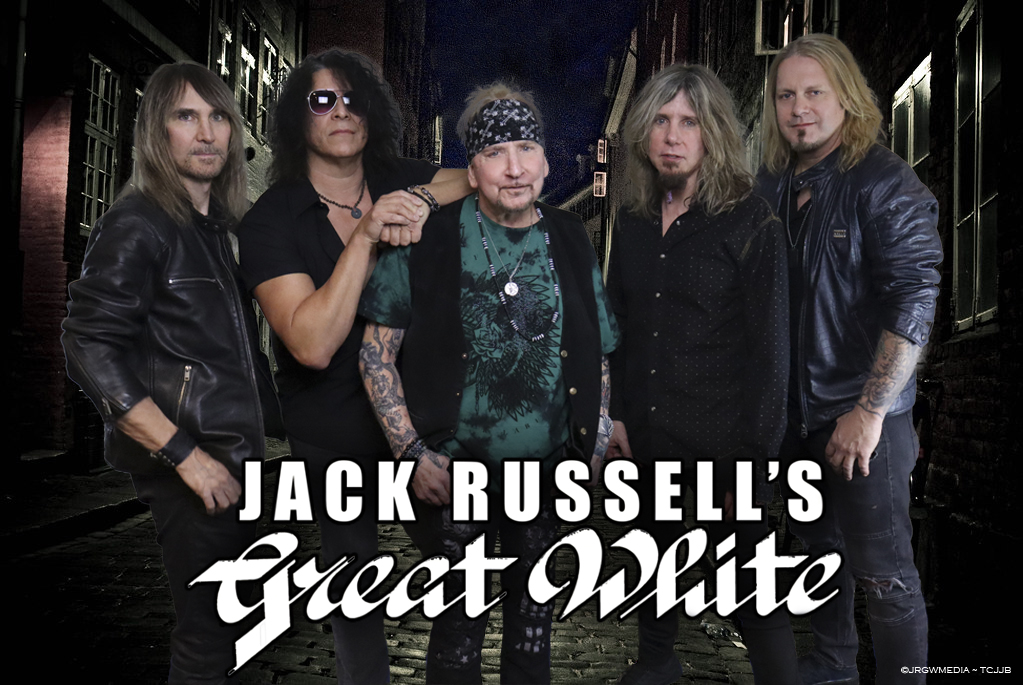
Jack Russell (December 5, 1960 – August 7, 2024) was an influential American rock vocalist, best known as the lead singer and one of the founding members of the hard rock band Great White. With a career spanning over four decades, Russell became a notable figure in the 1980s rock scene, contributing to the band’s distinctive bluesy, hard rock sound. His career was marked by success, adversity, and a deep passion for music, leaving an enduring legacy within the rock world.
Early Life and Musical Beginnings
Jack Patrick Russell was born on December 5, 1960, in Montebello, California, and was raised in a musical environment, with his early years defined by a love for the rock and roll music of the 1960s and 1970s. His passion for music developed in his teenage years, and he began performing in local bands during high school. His early influences included the likes of Led Zeppelin, The Rolling Stones, and Aerosmith, with vocalists like Robert Plant and Steven Tyler particularly shaping his own vocal style.
Russell was known for his powerful, raspy voice, which was imbued with a mix of hard rock grit and bluesy undertones. His charisma and raw energy on stage made him a natural frontman, setting the stage for his eventual breakthrough with Great White. By the early 1980s, he had already garnered attention in the Los Angeles music scene, which was rapidly evolving into a hub for rock and metal bands.
Formation of Great White
In 1977, Jack Russell co-founded the band Dante Fox, which would later evolve into Great White. The band was initially formed with guitarist Mark Kendall, who would become Russell’s primary musical partner throughout much of his career. Their early days were spent navigating the club scene in Los Angeles, where they honed their sound and developed a loyal fan base. Russell’s dynamic stage presence, paired with Kendall’s impressive guitar work, began to distinguish the band from the saturated rock scene of the time.
By 1982, Dante Fox was renamed Great White, a name that reflected both the band’s aggressive sound and their affinity for blues-influenced hard rock. The name was a nod to Kendall’s nickname, derived from his playing style, which was as sharp and powerful as a great white shark. This change coincided with a shift in the band’s sound, which was evolving toward a more polished, radio-friendly style that blended hard rock with elements of glam metal and blues rock.
Rise to Fame: Breakthrough with Great White
Great White’s self-titled debut album was released in 1984, but it wasn’t until their third album, “Once Bitten…” (1987), that they truly found commercial success. The album was a breakthrough for the band, featuring hit singles like “Rock Me”, which showcased Russell’s powerful voice and the band’s ability to balance heavy guitar riffs with melodic hooks. Russell’s vocal style was a perfect fit for the band’s sound—equal parts rock star swagger and soulful grit.
The follow-up album, “…Twice Shy” (1989), catapulted the band to even greater heights. The album’s most famous track, “Once Bitten, Twice Shy”, became a major hit, reaching the top 5 on the Billboard Hot 100. The success of this album solidified Great White’s place in the pantheon of 1980s hard rock bands. Jack Russell became a household name among rock fans, and the band found themselves touring extensively, performing in packed arenas and opening for iconic acts like Whitesnake and Judas Priest.
The 1990s and Changing Musical Landscapes
Like many bands from the 1980s hard rock and glam metal scene, Great White faced challenges in the 1990s with the rise of alternative rock and grunge. The changing musical landscape pushed bands like Great White to the periphery of mainstream attention, but they continued to record and tour, supported by a dedicated fanbase.
During the 1990s, Great White released several albums, including “Psycho City” (1992) and “Sail Away” (1994). Though these albums did not achieve the same level of commercial success as their late 1980s efforts, they demonstrated the band’s continued evolution and commitment to their craft. Jack Russell’s voice remained a defining feature of their sound, maintaining its raw power and emotional depth.
Tragedy and Recovery: The Station Nightclub Fire
One of the darkest moments in Russell’s career—and in rock history—came on February 20, 2003, during a performance by Jack Russell’s Great White at The Station nightclub in West Warwick, Rhode Island. During the performance, a pyrotechnic display ignited a fire that quickly spread through the venue, killing 100 people, including the band’s guitarist Ty Longley, and injuring many others. The fire became one of the deadliest nightclub fires in U.S. history and had a profound impact on Russell personally and professionally.
Russell expressed deep regret and sorrow over the incident, stating in interviews that the tragedy would haunt him for the rest of his life. For a time, it seemed like Russell’s career might never recover. He faced legal battles, health problems, and personal struggles in the years following the fire, but he remained committed to music, finding solace in performing and writing new material.
Health Struggles and Solo Career
In the years following the tragedy, Jack Russell’s health began to decline. He struggled with substance abuse, a battle he had been fighting throughout much of his life, and in the mid-2000s, he faced a series of health crises, including a perforated bowel and several spinal surgeries. These health issues forced Russell to take a break from touring, and for a time, it seemed uncertain whether he would return to the stage.
In 2011, Russell parted ways with Great White due to his health problems, leading to a legal dispute over the use of the band’s name. He eventually formed his own version of the band, “Jack Russell’s Great White,” which allowed him to continue performing under the moniker while the original band carried on with a different lineup.

Despite these struggles, Russell remained active in the music scene. His solo work, including the 2017 album “He Saw It Comin’”, showcased his continued passion for music. The album featured a mix of classic Great White-style rock and more introspective, personal lyrics, reflecting the ups and downs of Russell’s life and career.
Legacy and Final Years
On July 17, 2024, Russell announced that he was retiring from touring and disclosed that he had Lewy body dementia.
Jack Russell died less than a month after the announcement, on August 7, 2024, at the age of 63 at a family member’s home in Southern California, from complications of LBD and muscular system atrophy.
His death marked the end of an era for a musician whose voice had defined a generation of hard rock. Fans and fellow musicians alike remembered Russell for his unmistakable voice, his resilience in the face of adversity, and his lasting contributions to rock music.
His influence on the hard rock and metal scenes remains significant. Great White, with Russell at the helm, became a defining band of the 1980s, producing some of the most memorable hits of the era. Though his career was marked by both triumphs and tragedies, Jack Russell’s legacy as a passionate and talented rock vocalist endures. His music, particularly the hits of Great White, continues to inspire new generations of rock fans and musicians alike.
Jack Russell will be remembered not just for his powerful voice, but for his determination to keep creating music, even in the face of personal and professional hardships. His story is one of resilience, passion, and an undying love for rock and roll.
Check out Great White on Amazon.
Check out Jack Russell’s Great White on Amazon.
Check out some more of our articles on Musicians who died in 2024.
.

